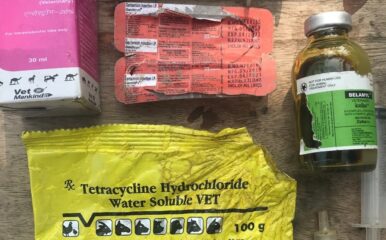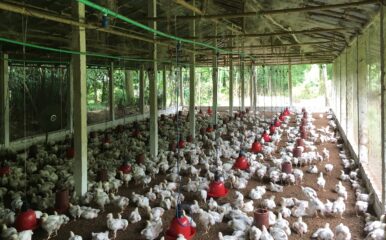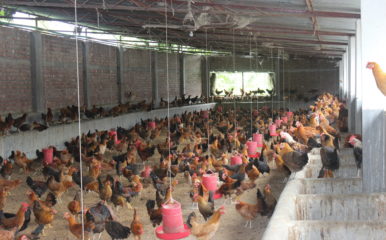
Unveiling roles: gender perspectives on food safety in Sri Lanka’s backyard chicken farming
Published on 13/07/2023
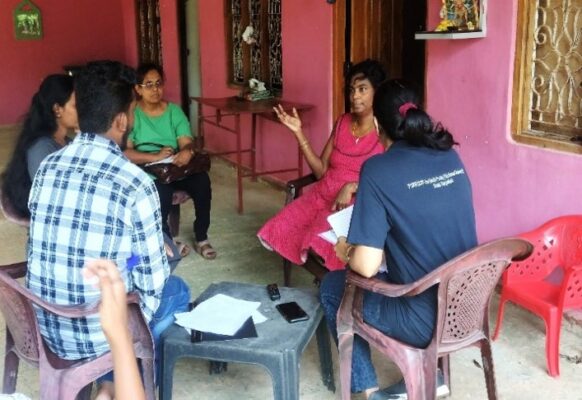
Danuka Nadeeshan
How society perceives and evaluates male-female behaviour may vary from place to place. Within this context, gender roles and norms become cultural constructs based on the social meanings assigned to them. In Sri Lanka, there is a noticeable gap in the literature about the ‘gender’ aspect of the backyard poultry system. Therefore, the social science research team of the One Health Poultry Hub in Sri Lanka started a research study on the roles of men and women in ensuring food safety in the backyard poultry production system in that country.
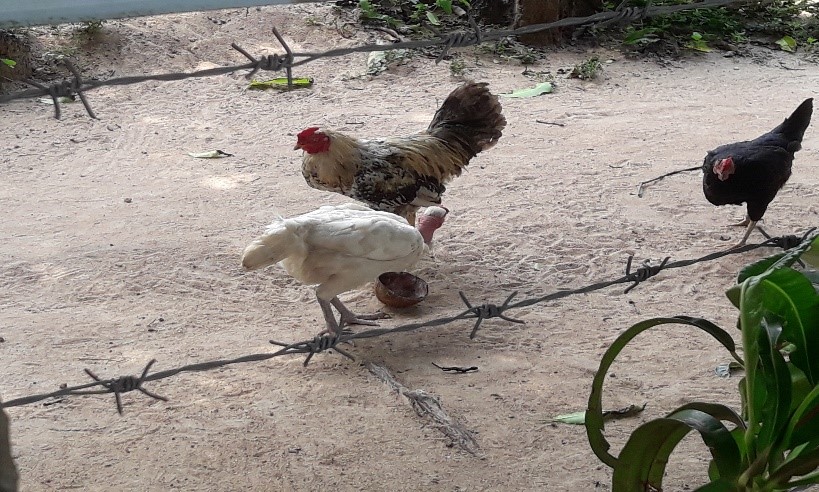
Backyard chicken in rural Sri Lankan households is primarily owned by men, although both women and men participate equally in poultry production. For example, in Sri Lanka, ownership of backyard chicken production assets is divided by gender with men being the primary owners of flocks of backyard chickens and women being the caretakers of the flock. In the Western province of Sri Lanka, very few women are reported to be the primary owners of poultry and both men and women play the roles of caretakers.
In light of this, the target respondents of the research were proposed to be men and women involved in backyard poultry production in the Northern, North-Western, and Eastern provinces of Sri Lanka. The research team has already completed visits to the Northern and North-western Provinces and hopes to visit the Eastern Province in the upcoming months.
Field visits
With the guidance and support of the provincial directors, regional veterinary surgeons and field officers, the the first field visits were made possible. Observation being the key data collection tool, eight backyard poultry farms in Kilinochchi District, Northern District, were observed, as were, on a second field trip, eight farms in the Ambanpola area of the Kurunegala District of the North-western Province. Multiple interviews were conducted with male and female owners and workers of those farms, with the assistance of on-site translators.
The respondents were chosen to represent both men and women, the list of target respondents having been generated using methods of snowballing where the main inclusion criterion was that the respondent is directly or indirectly and actively involved in the backyard poultry production in the chosen study site and therefore has expertise in the area s/he is interviewed on. Respondents with talking, hearing, and listening disabilities were excluded from the study.
Multiple characteristics unique to each area were identified and observed during the field visits. Thematic analysis will be the key data analysis technique used in this primarily qualitative study. The interviews and observations were conducted by a pool of experienced researchers from the University of Peradeniya. The team is expected to complete the third field visit shortly to cover the Eastern Province in Sri Lanka.

